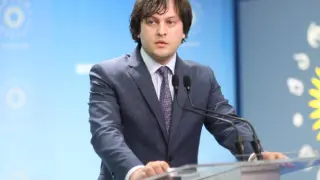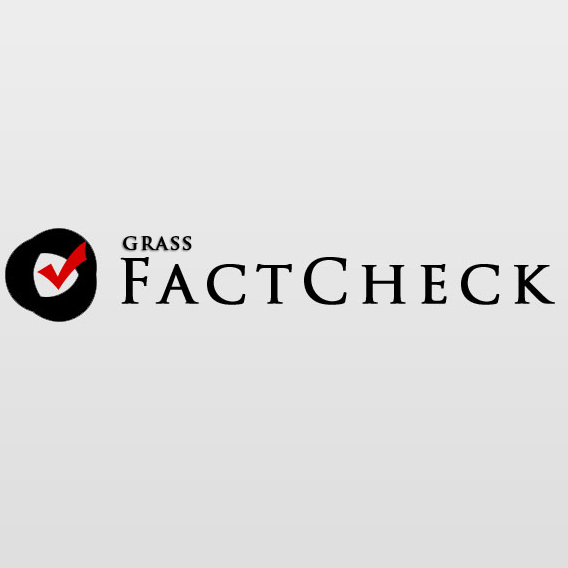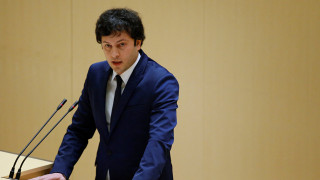Irakli Kobakhidze: “The budget for education and science has increased significantly. In particular, the budget for preschool and general education has risen by GEL 419 million.”
Verdict: FactCheck concludes that Irakli Kobakhidze’s statement is HALF TRUE.
The draft budget for education amounts to GEL 3.085 billion in 2025, representing an increase of GEL 514 million as compared to the previous year. The planned budget for preschool and general education is GEL 1.903 – not GEL 2.462 as stated by Mr Kobakhidze. Funding for vocational education in 2025 is set at GEL 149 million – not GEL 175 million, marking a GEL 36 million increase from last year.
The higher education budget constitutes GEL 171 million (instead of the claimed GEL 201 million) and marks a year-over-year rise of GEL 5.1 million. The budget for promoting science and scientific research has risen by GEL 7.8 million – from GEL 78.2 million to GEL 86 million. A total of GEL 13.8 million is allocated to youth support, up from GEL 8.9 million last year – these two figures were cited accurately by Irakli Kobakhidze.
As evident, whilst all areas of education have seen budget increases, Prime Minister Kobakhidze’s figures were inaccurate. Furthermore, education spending as a share of the GDP has averaged 2.7% over the past five years.
One of the main purposes of increasing the education budget should be to improve the quality of education. However, international studies and local assessment criteria indicate the opposite: Georgian students are not improving their reading and comprehension skills according to international research. The situation is slightly better in mathematics and science but Georgian students’ average scores remain below the international average even there. Local assessment criteria also show that a significant share of students graduate school with only minimal basic competencies.
Literacy, the ability to formulate ideas and clear self-expression, remains a challenge for young people according to a UNICEF study.
Thus, considering the inaccuracy of the figures presented and the fact that education quality has not significantly improved over the years despite increased funding, FactCheck concludes that Irakli Kobakhidze’s statement is HALF TRUE.
Analysis
At the presentation of the party’s annual report, Irakli Kobakhidze highlighted the education budget, stating: “The budget for education and science has increased significantly. In particular, the budget for preschool and general education has risen by GEL 419 million – from GEL 2.043 billion to GEL 2.462 billion. This increase was largely driven by a rise in teachers’ salaries… School teachers’ pay has risen substantially since 1 July 2024…
The budget for vocational education rose by GEL 30 million – from GEL 145 million to GEL 175 million. Furthermore, the higher education budget also grew by GEL 30 million – from GEL 171 million to GEL 201 million. The science budget increased by GEL 6.65 million – from around GEL 79.6 million to about GEL 86 million. The youth programs budget rose by nearly GEL 5 million – from GEL 8.9 million to GEL 13.8 million."
FactCheck took interest in the budget for education.
The planned budget of the Ministry of Education, Science and Youth is GEL 3.085 billion this year. The planned budget for preschool and general education is GEL 1.903 billion – not GEL 2.462 billion as stated by Irakli Kobakhidze. Furthermore, the budget for preschool and general education in 2024 was GEL 1.640 billion. Therefore, the year-over-year increase amounts to GEL 263 million – not GEL 419 million.
As for vocational education funding, GEL 149 million is allocated in 2025, representing an increase of GEL 36 million as compared to the previous year.
The higher education budget constitutes GEL 171 million and reflects a year-over-year rise of GEL 5.1 million. The budget for promoting science and scientific research has risen by GEL 7.8 million – from GEL 78.2 million to GEL 86 million. A total of GEL 13.8 million is allocated to youth support, up from GEL 8.9 million last year.
Table 1: Budget for Education (GEL Million)
As evident, whilst all areas of education have seen budget increases, Irakli Kobakhidze’s figures were inaccurate.
We also looked into how education budget has grown relative to the GDP.
The preliminary data for the GDP in 2024 at current prices was GEL 91.9 billion and the education budget amounted to GEL 2.5 billion – 2.7% of the GDP. The GDP was GEL 80.9 billion in 2023 with the education budget at GEL 2.077 billion (2.6% of GDP). The education budget was GEL 1.7 billion in 2022 whilst the GDP was GEL 72.8 billion, making the share 2.3%. The education budget was GEL 1.8 billion in 2021 – 2.9% of the GDP (GEL 60.7 billion) and in 2020 it was GEL 1.5 billion, averaging 3.5% of the GDP (GEL 49.7 billion). Thus, education spending has averaged 2.7% of the GDP over the past five years whilst the ultimate goal is to raise education funding to 6% of the GDP according to the 2022-2030 National Strategy of Education.
Irakli Kobakhidze also highlighted the increase in teachers’ salaries in his statement. Indeed, a new payment mechanism for teachers has been in effect since 1 July 2024 under which salary increases are determined by workload rather than competence. The biggest raises (around GEL 500-800) under the new system went to senior teachers who make up the largest group in schools – approximately 41,000 out of a total of 56,703 teachers employed in public schools in the 2023-2024 academic year (see detailed article).
It should also be noted that despite the nominal increase in education funding (with the percentage relative to the GDP averaging 2.7%), the quality of general education has not significantly improved over the years. Moreover, international studies show that Georgian students have not improved their reading and comprehension skills. The situation is slightly better in mathematics and science but Georgian students’ average scores remain below the international average even there.
Local assessment criteria also show that a significant share of students graduate school with only minimal basic competencies. (see article).
The situation is no better in higher education. UNICEF recently published the results of a study on the skills and key competencies of young people in Georgia which found that they face major challenges in literacy – particularly in formulating and clearly expressing ideas.
Irakli Kobakhidze points to increased education funding as evidence of the sector’s success. However, the main purpose of such increases should be to improve the quality of education. In reality, despite years of higher funding, research shows that the quality of both general and higher education remains unsatisfactory and in need of improvement.
Considering the aforementioned and the fact that the cited figures are inaccurate, FactCheck concludes that Irakli Kobakhidze’s statement is HALF TRUE.








